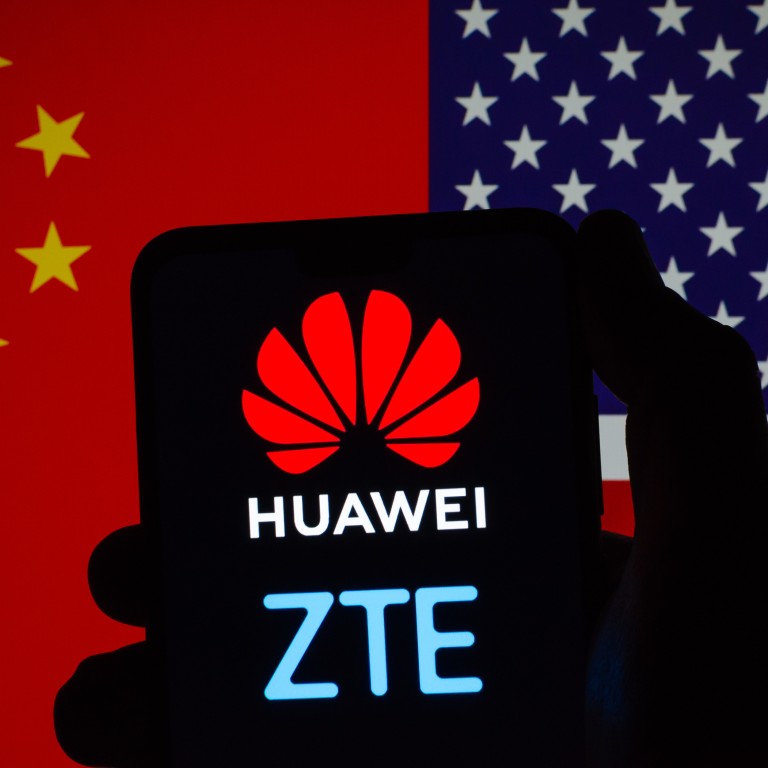
Tech war: FCC says reinstating ‘net neutrality’ rules could boost agency’s authority to remove Huawei, ZTE equipment from US networks
- FCC’s proposal to reinstate net neutrality rules also seeks to prohibit use of Chinese gear in other network infrastructure, including data centres
- Washington’s efforts to counter Chinese tech giants Huawei and ZTE come amid US fears that Beijing could use their equipment to spy on Americans
It also asks if the authority would allow it to prohibit Chinese equipment in any network infrastructure used to route or transmit communications, including data centres and internet exchange facilities.
Huawei and ZTE did not immediately respond to requests for comment.

It previously revoked or denied authority to Chinese telecoms companies to operate telecommunications services in the US.
The FCC said the net neutrality rules would enhance the agency’s “ability to protect the nation’s communications networks from entities that pose threats to national security”.
US FCC bans equipment sales and imports from Huawei, ZTE over national security risk
Rosenworcel said existing “authority does not cover broadband. This is a national security loophole that needs to be addressed”.
The proposal faces an initial October 19 vote and also asks if the FCC could prohibit internet service providers from entering into traffic exchange arrangements with some companies on national security grounds.
The Chinese embassy in Washington said previously that the FCC “abused state power and maliciously attacked Chinese telecoms operators again without factual basis”.
Huawei has repeatedly denied allegations of wrongdoing and said the US government has “unlawfully and irrationally” targeted the company.
Huawei’s Meng Wanzhou sees continued global expansion of 5G mobile services
Washington’s efforts to counter the Chinese tech giants come amid US fears that Beijing could use them to spy on Americans. Washington has for years pressured US allies not to use Huawei or ZTE equipment on 5G networks or remove gear from these companies in existing networks.

